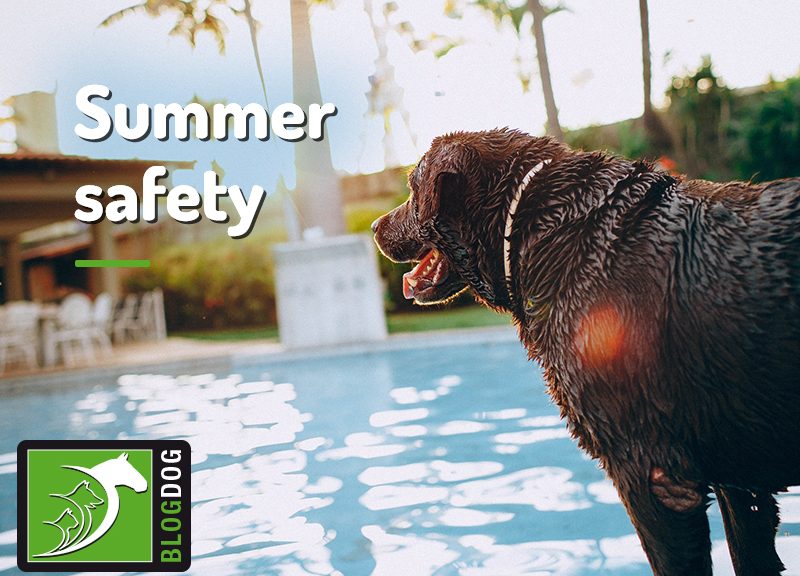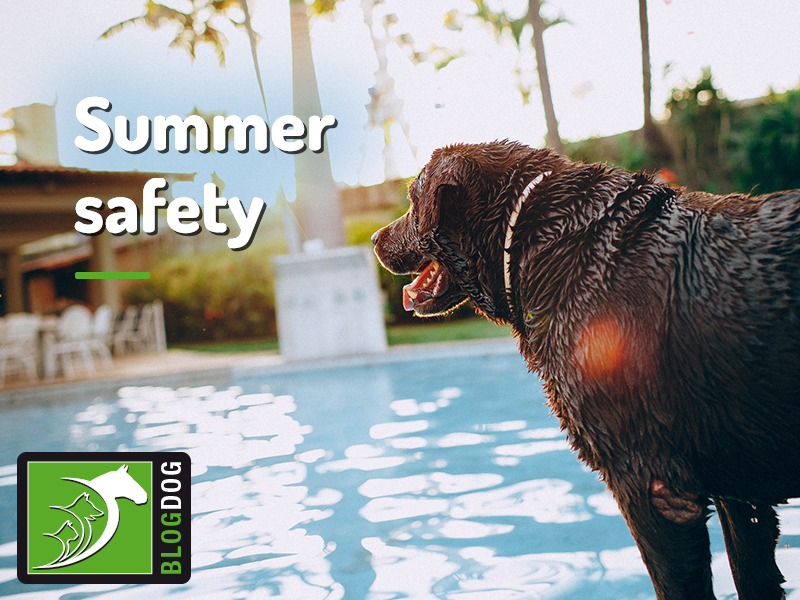Summer’s here! For most of us, this means that it’s time for a break and we can enjoy a few days of relaxing with the family.
If you’re planning to stay local this year, this is the perfect opportunity to organise activities that include your four-legged friends.
With this in mind, keep reading our advice to keep your dog safe this summer!
Dog theft
Many of us have decided to adopt or buy a pet during the pandemic. Unfortunately, there are people who are keen to take advantage of the current high demand for pets to make a profit, and these criminals are looking to steal dogs and sell them at inflated prices.
If you have a dog, before leaving the house, make sure that:
- Their microchip details are up to date,
- They are wearing a collar or harness with an id tag,
- You never leave them unattended outside of a shop, in a garden, etc.
If you are looking to buy a dog, please thoroughly research the seller before making any decision. So take up references and make sure that everything checks out.
Preventive care
If you are planning to take your dog to a pet-friendly park or outdoor space where they will be in contact with other dogs or animals, make sure that their parasite treatments and vaccinations are up to date.
Kennel cough is a highly contagious disease that can easily be caught if your dog spends time with an infected animal. Also, there have been recent reports of parvovirus outbreaks in some areas in the UK. Vaccinations are available for both of these diseases.
If your pet enjoys lying in the sun for a nap, don’t forget to apply pet-safe sunscreen to sensitive areas (such as the tip of the nose and ears) to avoid sunburn.
Heatstroke
Our pets do not have the same ability to cool down as we do, making it harder for them to cope with high temperatures.
If you are planning to include your dog on a hike or a trip to the beach, make sure to avoid the hottest hours of the day, take plenty of water (for both of you) and ensure that you can provide them with a shaded area to rest.
If you notice any breathing difficulties, excessive panting, agitation, or lethargy, and if your dog seems wobbly or collapses, they are likely to be suffering from heatstroke and will need to be seen by a vet immediately. Before you head out, make sure that you have the contact information of a nearby vet in case this or any other emergency happens.
Accidents and potential problems
Accidents can happen, so if possible, take a first aid kit with you when you’re out and about and, again, keep the contact details of a nearby vet at hand.
If your dog gets stung by a bee, they may develop an allergic reaction that can compromise their breathing. If this happens, they need to be seen without delay.
Also common during summer are grass seed-related incidents. Due to their arrow-like shape, grass seeds can get stuck on your pet’s hair and penetrate their skin, leading to nasty infections. They can also get into their eyes, nose and mouth, with a similar outcome.
After walks, make sure that you always check your dog’s hair for grass seeds and, while you’re at it, ticks as well.
Near water
If you find a stream or a pond and your dog is keen to go in for a swim, have a look around for any warning signs of blue-green algae. These are collections of bacteria that produce toxins that are very harmful to your pets, so do not let them in if you suspect the water may be contaminated.
Keep in mind that your dog may not know how to swim, so consider getting them a floating harness, and make sure that they are always within your reach and that you can safely get to them if you find them in distress.
Would you like to know more about dogs? Check our Canine Courses:
![]()
Canine courses

